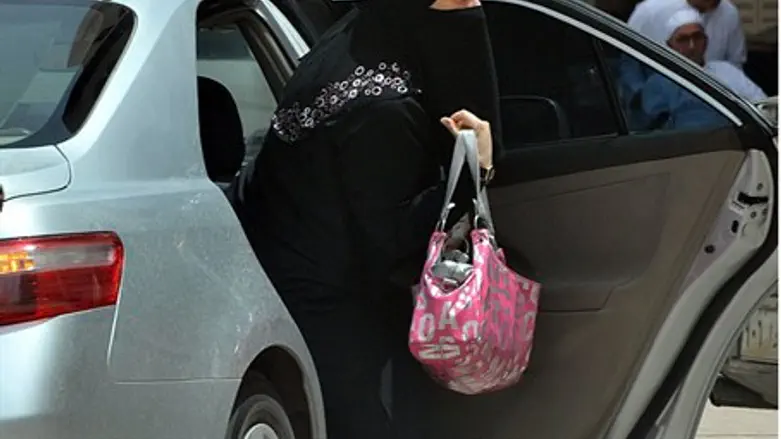
Saudi Arabia, a country not known for its stellar record when it comes to women’s rights, made some noise again this week.
This time, restaurants in the Kingdom moved to ban single women from entering without a male chaperone, eliciting criticism from human rights organizations.
According to the Gulf News website, several restaurants in the kingdom have begun displaying signs that say "women are not allowed".
One restaurant owner told the Arabic newspaper Al Hayat, "We put up these signs because we have seen numerous incidents of flirting taking place inside the restaurant."
He then clarified that the restaurant will “only remove these signs when we make sure such incidents never happen again on our premises because such type of behavior negatively impacts our business.”
One male blogger quoted by Gulf News described what he called the "shocking" behavior exhibited by unaccompanied women, including the use of mobile phones and smoking.
"The best thing is to keep women away from restaurants unless they have a male custodian," he said. "That way the restaurant is not shut down because of the misbehavior of an adolescent or mentally unstable woman."
The head of Saudi Arabia's National Society for Human Rights (NSHR), Khalid Al Fakhri, called the measure illegal and demanded that the signs be removed immediately.
"These signs are against the law and reflect the personal opinions of the restaurant owners," Al Fakhri said.
Saudi Arabia, with its religious police enforcing Sharia law, is also notorious for its longstanding ban on women drivers.
Activists have launched a campaign against the ban and have encouraged women to post pictures of themselves driving on Twitter under the hashtag #IWillDriveMyself, as well as on Instagram, YouTube and WhatsApp.
Many women have driven since the campaign was launched in 2011, some of them have posted videos of them doing so, and many have been arrested and forced to sign a pledge that they will never drive again.
Despite its problematic human rights record, Saudi Arabia last year won a seat on the UN Human Rights Council, along with other countries with questionable human rights records, including China, Russia, Algeria, Cuba and Vietnam.